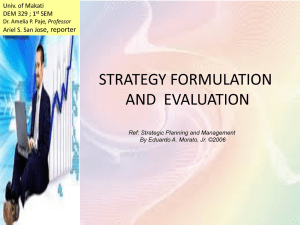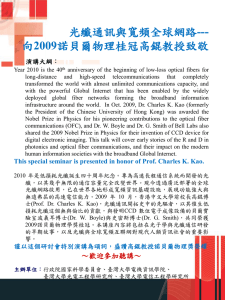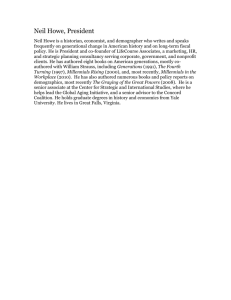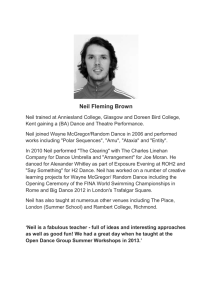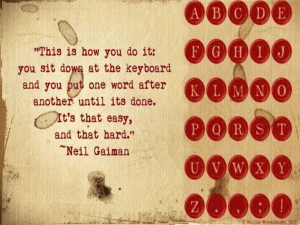Read Anne Fadiman's speech
advertisement
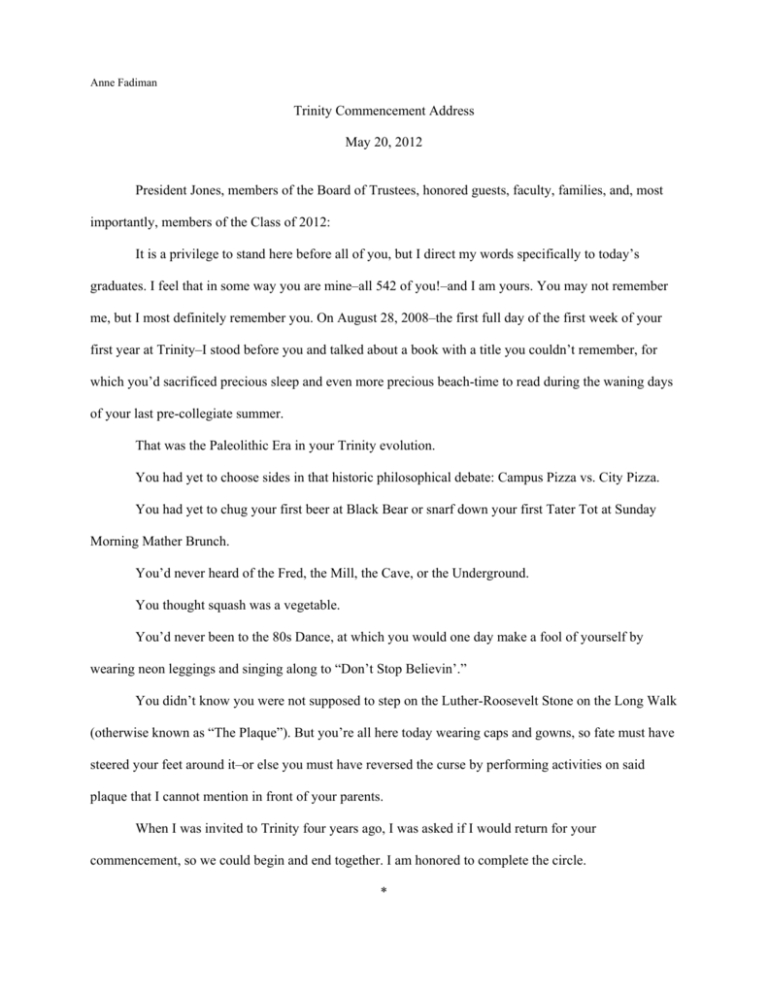
Anne Fadiman Trinity Commencement Address May 20, 2012 President Jones, members of the Board of Trustees, honored guests, faculty, families, and, most importantly, members of the Class of 2012: It is a privilege to stand here before all of you, but I direct my words specifically to today’s graduates. I feel that in some way you are mine–all 542 of you!–and I am yours. You may not remember me, but I most definitely remember you. On August 28, 2008–the first full day of the first week of your first year at Trinity–I stood before you and talked about a book with a title you couldn’t remember, for which you’d sacrificed precious sleep and even more precious beach-time to read during the waning days of your last pre-collegiate summer. That was the Paleolithic Era in your Trinity evolution. You had yet to choose sides in that historic philosophical debate: Campus Pizza vs. City Pizza. You had yet to chug your first beer at Black Bear or snarf down your first Tater Tot at Sunday Morning Mather Brunch. You’d never heard of the Fred, the Mill, the Cave, or the Underground. You thought squash was a vegetable. You’d never been to the 80s Dance, at which you would one day make a fool of yourself by wearing neon leggings and singing along to “Don’t Stop Believin’.” You didn’t know you were not supposed to step on the Luther-Roosevelt Stone on the Long Walk (otherwise known as “The Plaque”). But you’re all here today wearing caps and gowns, so fate must have steered your feet around it–or else you must have reversed the curse by performing activities on said plaque that I cannot mention in front of your parents. When I was invited to Trinity four years ago, I was asked if I would return for your commencement, so we could begin and end together. I am honored to complete the circle. * 2 Today, as you prepare to walk out of the Quad and conquer the world–or, alternatively, begin your seventh unpaid internship–I’d like you to think about the two kinds of people the world contains: lumpers and splitters. I am a splitter, otherwise I wouldn’t be dividing the world into lumpers and splitters. Lumpers look at the world by seeing what things have in common. Splitters look at the world by differentiating one thing from another. I am married to a lumper–a deeply beloved lumper who happens to be sitting in one of the front rows here today. I’d always had my suspicions about George, but they were confirmed the day we moved in together and started unpacking the kitchen utensils. George put the big and little spoons in the same compartment. That was a deeply traumatic moment for me, but somehow the marriage survived. I’ll say a few pro-lumper words in a moment, but let me first remind you of some of the benefits of being a splitter–of honoring the differences between spoons, or between people. Some of us are introverts, and some of us are extroverts. Some of us are Republicans, and some of us are Democrats. Some of us like mayonnaise, and some of us (including me) happen to think it’s the most disgusting substance known to man. What would happen if everyone were the same? You’d die of boredom. What would happen if you wanted everyone to be the same? You’d start out saying “Wouldn’t this relationship be easier if my partner were more like me?” And pretty soon you’d find yourself saying, “Wouldn’t the world be better if everyone were more like me?” That is an attitude that leads at best to misunderstanding, and at worst to war. There’s a wonderful phrase from the Talmud: “We do not see the world as it is. We see the world as we are.” Actually, I’m not sure it’s really from the Talmud, since it’s also been attributed to Immanuel Kant and Shirley MacLaine. But whoever said it, it’s true. It was the theme of The Spirit Catches You and You Fall Down, which you read four years ago. The Hmong family I wrote about couldn’t see the world from their doctors’ point of view. Their doctors 3 couldn’t see the world from the Hmong point of view. The result was tragedy. It’s hard to walk a mile in someone else’s shoes, especially if theirs are size 6 triple-A and yours are Size 12–or vice versa. But learning to do so–in other words, learning to honor each other’s differences–is one of the most important skills you can master: more important than learning how to speak Chinese, how to program, or how to scrub your Facebook history so you can run for office someday. Just think how grateful you are right now if your parents appreciate your differences. Maybe they always wanted you to be a doctor, but you want to make documentary films and eat ramen. Or maybe it’s the opposite: they’re ex-hippies who wished you’d spent your senior year in an Occupy tent, but instead you’ve decided your heart lies with Goldman Sachs. Those parents–parents who love you, parents who have sacrificed for you–are here today, and I say to them: If your children want to take paths different from your own, that does not mean they do not honor you. They are honoring the freedom you have given them to be themselves. Having asked you to be a splitter by honoring the individuality of those around you, let me now ask you to do the opposite: to be a lumper, like my husband, and honor what we have in common. Here is a small example. Let's say you were to get stuck in a broken elevator for a couple of hours with a woman who had an unfamiliar accent. A really bad way to open the conversation would be to ask her, "Where are you from?" Because when you think about it, what does that question really mean? It means, "Exactly how do you differ from me?" It means: “I belong. As a privileged member of this culture, I stand in the place called `here.’ Would you please confirm my comfortable position by helping me measure just how far away you stand, in the place called ‘there’?” And in any case, your elevator-mate might flummox you by responding, "I'm from Hartford," since she might very well have lived in the United States for twenty years. Instead, perhaps you could ask her, “How long do you think we're going to be stuck in this elevator? Do you need to go to the bathroom as badly as I do?” And then, after having established some 4 common ground, you'd be ready to start exploring your differences–where you were born, whom you voted for, and finally, the really important and potentially divisive stuff, like whether or not she likes mayonnaise. * I’ve asked you to do two contradictory things: to honor difference, and to honor commonality. Do we have to choose just one? Is there a way to reconcile these seeming opposites? I think there is. It’s something I told you four years ago, but I believe you can understand it better now: Don’t assume that you–you as an individual, or you as an American–stand at the center of the universe. It isn’t true, and it never helps. Four years ago, I asked you to remember back to when you studied set theory in seventh grade. You learned about Venn Diagrams, those intersecting circles that look sort of like a MasterCard logo. The area where the circles overlap contains the elements the two sets have in common. A mathematician friend of mine told me that the pointy ellipse in the middle is called a “lune,” from the French word for moon. Now imagine you’re standing in one of those circles. If the two circles don’t intersect much and you stand smack in the center of yours, you’re never going to be in the lune. You have to walk over to the periphery, toward the other circle, inside of which stands another person. When you do that, you are both a splitter and a lumper. You find the common ground because you have seen–truly seen–another individual human being. You haven’t looked at the problem from 30,000 feet. You’ve looked through a close-up lens–or through no lens at all, because you’re standing right next to someone, and looking him or her in the eyes. * I’d like to end with a story about two of the people in the book you read so long ago. I just wrote a new afterword to the book, and this was the most important part. The story is about Nao Kao Lee, the father of Lia, the child whose illness caused such conflict, and Neil Ernst, one of Lia’s doctors. Nao Kao hated Neil because he had once obtained a court order to remove 5 Lia from her family and place her in a foster home where she would be given her medications correctly, but where no one spoke Hmong. A few years ago Neil and I spoke together on a panel at U.C. Davis. Lia’s parents, Foua and Nao Kao, were in the audience, with a Hmong interpreter at their side. They heard Neil explain how hard it had been to take Lia from her family. They heard his voice break as he said he’d felt he had no other choice, but he was sorry for the pain he had caused. Afterward, Nao Kao walked up to Neil and looked him straight in the eyes for a long moment, something Neil never remembers him having done before. I believe Nao Kao truly saw Neil for the first time. Through an interpreter, he said he understood how much Lia’s doctors had cared about her. And he thanked Neil. Less than two months later, Nao Kao died. But he died reconciled with a man he had viewed as his enemy for more than a decade. The two of them had found the lune. * After you graduate today, you will enter a difficult world. But even though it contains violence and greed and apathy and anger; even though at times you will feel, in the words of the poet Matthew Arnold, that you are standing on “a darkling plain / Swept with confused alarms of struggle and flight”; even though you will feel overwhelmed; even though you will occasionally despair–I have faith that you will come through. You look very beautiful to me at this moment, sitting out there in the Quad. You are so young, and so strong, and so hopeful. And you already know what you need to do: Be open, not closed. Resolve conflicts, not inflame them. Be so honest in all your dealings that if your grandmother were looking over your shoulder, you wouldn’t be embarrassed. And find the common ground by acknowledging that your way may not be the way. You know these things. Now all you need is to be brave enough to go out and do them. And that starts now. 6 As you march down the Long Walk, and then into the even longer walk of your adult lives, first: step on that plaque! After that, I wish you the generosity to turn your eyes to the wider world, the humility to realize that you do not stand at the center of the universe, and the grace to do what Nao Kao and Neil did: truly see each other.
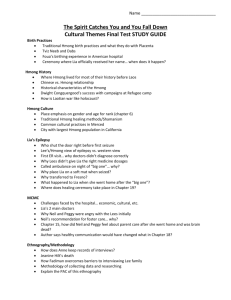
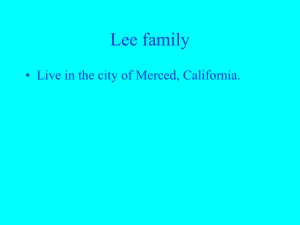
![[#OPENDS-1029] Update daily build mail subject to indicate](http://s3.studylib.net/store/data/007734190_2-d66144ca725a9119b45ca78b6568f0a8-300x300.png)
